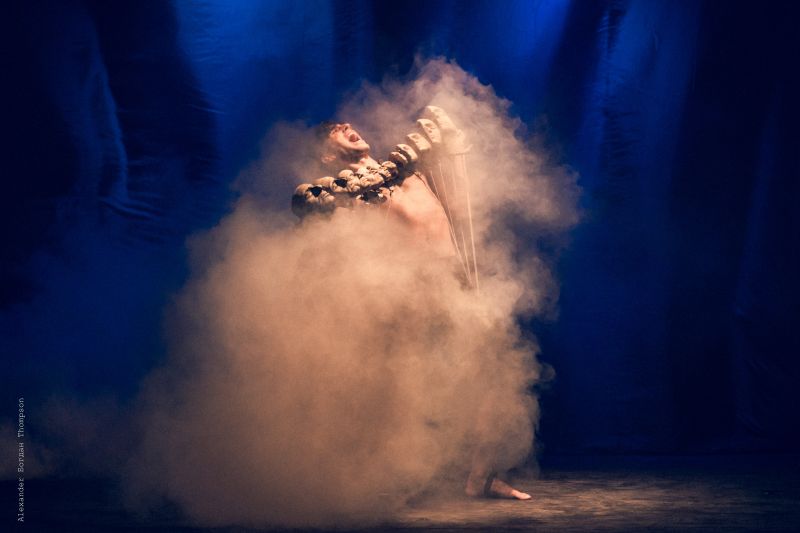The forum "What are young people looking for in the theater", which was held at the Youth Theatre, as part of the Novi Sad Theatre Festival, revealed a number of interesting details, even completely surprising for the theatre profession, about what young people would watch in the theatre, what they do watch, what their habits are regarding theatre, what it means to them and how they understand theater...
The Forum was led precisely and expertly by the playwright Divna Stojanov, and the participants – highschoolers, their teachers, actors, directors, theatre directors, journalists, professors from the Faculty of Philosophy, enjoyed and shared fantastic, extremely useful observations about our theatre.
The strongest impression from the audience is that for young people, theatre is a consolation, solace for the reality in which we live today. They go to the theatre for catharsis, which, they find in a good play. For them, it is the one that has a good story that is important to them at the moment of their life. They are delighted when all segments of the play are good, from the set design and costumes to the direction and acting.
They claimed that they are always hungry for the theater, but that they would not watch just anything. They are very versed in reading the repertoire and finding what concerns them. It is not hardship for them to watch some plays, which they like and consider exceptional, several times, and those they did not like at the first viewing, and others did - they almost always give a second chance to make up their own mind.
They go to all three theatres in Novi Sad, that is, they watch plays that are created at four theatre addresses in Novi Sad (the fourth is the "Promena (Change)" Theatre), and sometimes they take their parents to group outings to the theater as well. They prefer to watch plays in company, because then after them they can discuss what they saw, and the discussions about the plays extend into the Serbian lessons back at school.
Some of the students from the language high school said that they experience the quality of a performance - good or bad - psychosomatically. After some, they cannot come to their senses for days, because of what they had seen deeply shook them. Additionally, the plays that were not to their liking or offended them with their poor quality, they are able to argue about for hours.
For those young people, the best plays in Novi Sad include "Three Winters" at the "Promena" Theatre, "Heavenly Squad", "Lounge", "Who Killed Janis Joplin" and "Not Giving Up" at the Serbian National Theatre, then "Neoplanta" at the Novi Sad Theatre/ Ujvideki Szinhaz, and "39 Steps", "The Twelfth Night", "Hair" and "Crime and Punishment" at the Youth Theatre.
A high school graduate from the language high school, said that she watched as many as ten plays last March alone. They mainly go to the theatre with their teacher, who always chooses carefully. It seems that they like tragedies more than comedies, or so far they haven't come across any very good comedy, except for "39 Steps".
They were categorical in their dislike of commercial performances, that is, as they said, "packaged performances". They don't have a favorite director, but they tend to write to directors on Facebook if their performances have ruined their evening.
They believe that theatre teaches critical thinking and that it can help solve some - seemingly - hopeless life situations, or experiences full of dilemmas, that it can console and remind that some other people have gone through similar dilemmas and problems and that they survived them. They believe that it is important for the theater to talk about something important, which concerns them, which concerns all of us as a society, and not deal with some trivial topics. It is especially important, they pointed out, to deal with topics that are not talked about in this society.
From all that has been said, it seems that children are unfailingly able to feel and recognize quality, not only on the basis of some emotional experience, but on the basis of the factual situation on the stage, which includes all the elements of a work of art. Also, they know how to appreciate the efforts of artists.
To the questioning of the present theater creators, what they would like to see in the theatre, which topics are important to them, Professor Urban, who is largely responsible for the love that her students have for the theater, answered first. She is of the opinion that the theater does not have to and should not be adapted to young people, but that it is enough just to make good performances - to offer them the right things, which include all regular topics. These are themes of growing up, love, the disintegration of the former country and the burden left on the young generations after that historical trauma – trans-generational trauma, themes of individual and collective identity, heritage, but also themes that unite different generations, between which - through theatre, according to the students, healthy communication bridges of understanding can be built. They asserted that there are no taboo topics in the theatre.
Speaking about what is forgivable or unforgivable in a play, they said that they can forgive if some detail in the play is not right, for example costumes or scenography, as well as that they are very sorry when most of the actors are good, and some are clearly not. They wonder if those who don't try, or aren't good, are aware of it, and why someone doesn't tell them if they aren't.
The Youth Theatre, the organizer of this meeting of students and theatre creators, listened carefully to what the exceptional students from the language high school not only ask for, but also what they had to say about the theatre. The Youth Theatre will provide them with free tickets for several performances from the repertoire.
Snežana Miletić







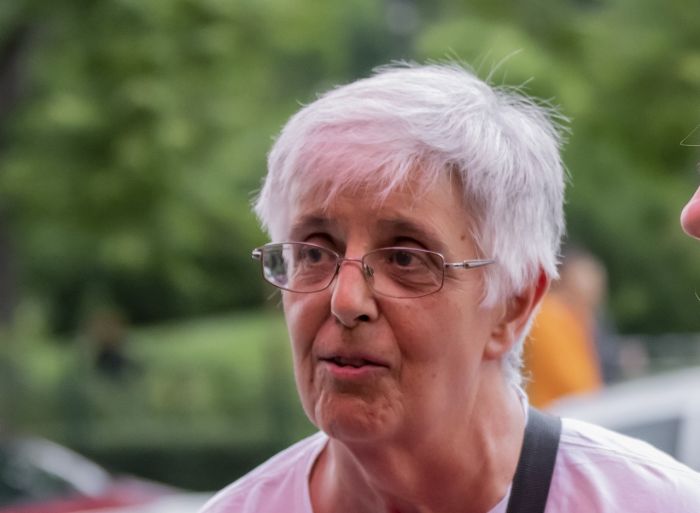 Because of her unusual, almost aggressive self-portraits, Mexican painter Frida Kahlo (1907-1954) is permanently inscribed in the painting of the 20th century, while she is preserved in the collective memory thanks to her energy and combativeness, her bus accident (1925) and her passionate relationship with the famous painter Diego Rivera (1886-1957), whom she married for the first time in 1929. Her strong will and uncompromising approach to problems were shown already in her early childhood when, as a six-year-old girl, she suffered from polio and, despite her disability, persistently tried to be like other children. The author's project of playwright Jelena Kovačić and director Anica Tomić "Little Frida" produced by the City Theatre "Žar ptica" Zagreb (Croatia) was inspired by Frida Kahlo's childhood in the family's Blue House (La Casa Azul) in the district of Coyoacan, Mexico City. The play was on stage on May 14, at the Third International Festival of Professional Theatres for Children and Youth "Novi Sad Theatre Festival" (May 8-15, 2024).
Because of her unusual, almost aggressive self-portraits, Mexican painter Frida Kahlo (1907-1954) is permanently inscribed in the painting of the 20th century, while she is preserved in the collective memory thanks to her energy and combativeness, her bus accident (1925) and her passionate relationship with the famous painter Diego Rivera (1886-1957), whom she married for the first time in 1929. Her strong will and uncompromising approach to problems were shown already in her early childhood when, as a six-year-old girl, she suffered from polio and, despite her disability, persistently tried to be like other children. The author's project of playwright Jelena Kovačić and director Anica Tomić "Little Frida" produced by the City Theatre "Žar ptica" Zagreb (Croatia) was inspired by Frida Kahlo's childhood in the family's Blue House (La Casa Azul) in the district of Coyoacan, Mexico City. The play was on stage on May 14, at the Third International Festival of Professional Theatres for Children and Youth "Novi Sad Theatre Festival" (May 8-15, 2024).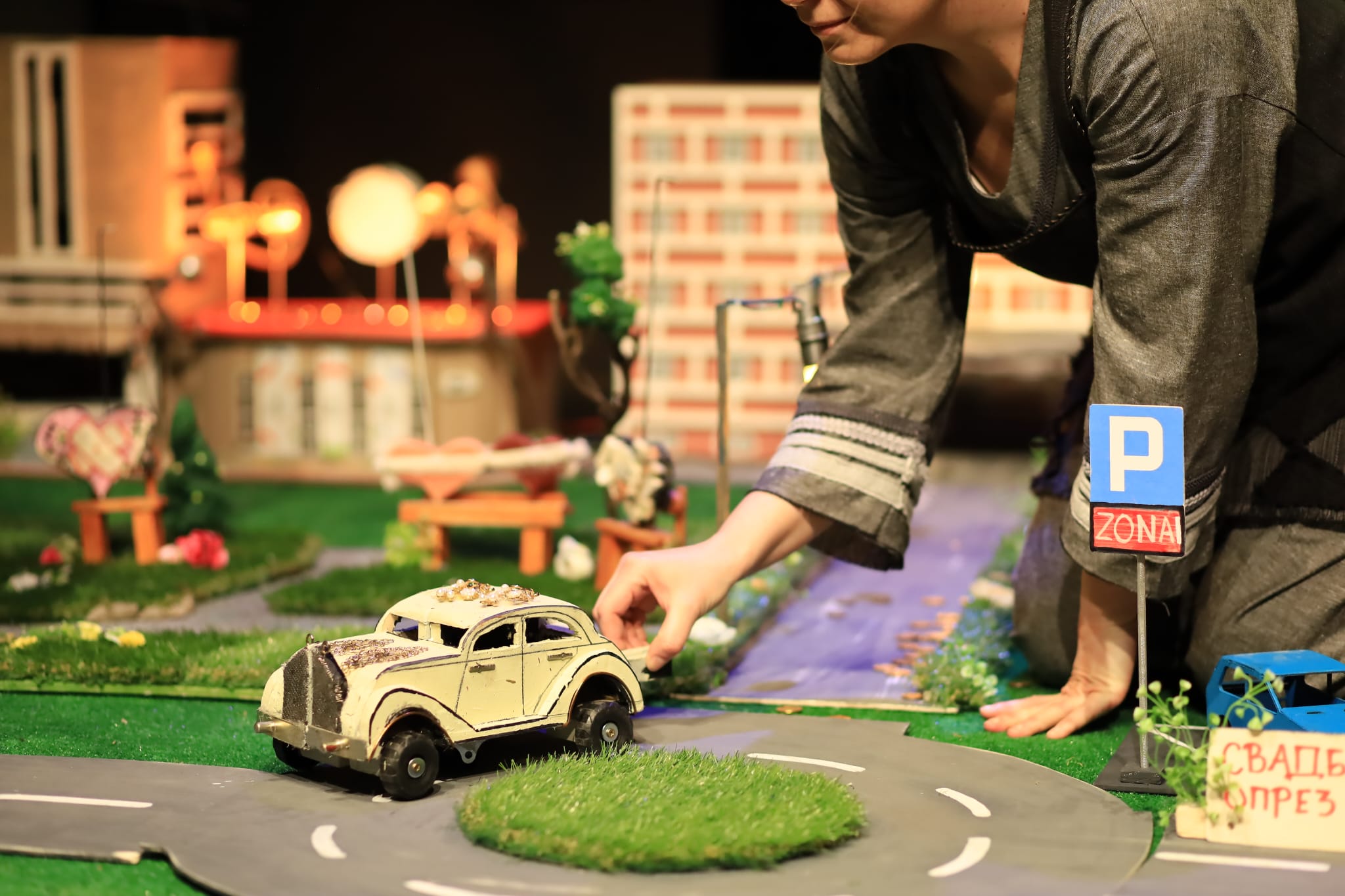

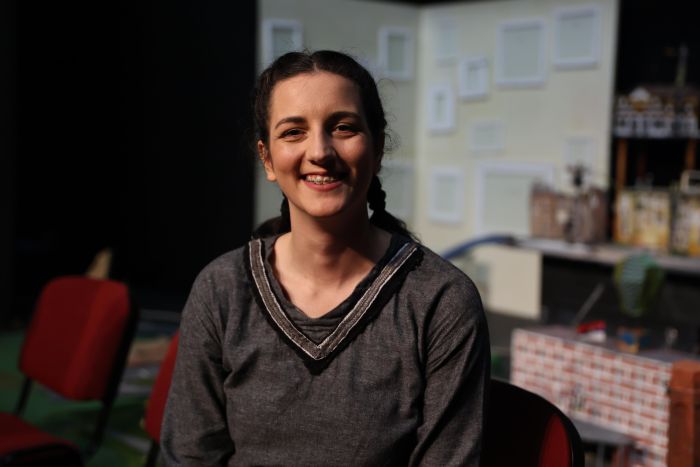




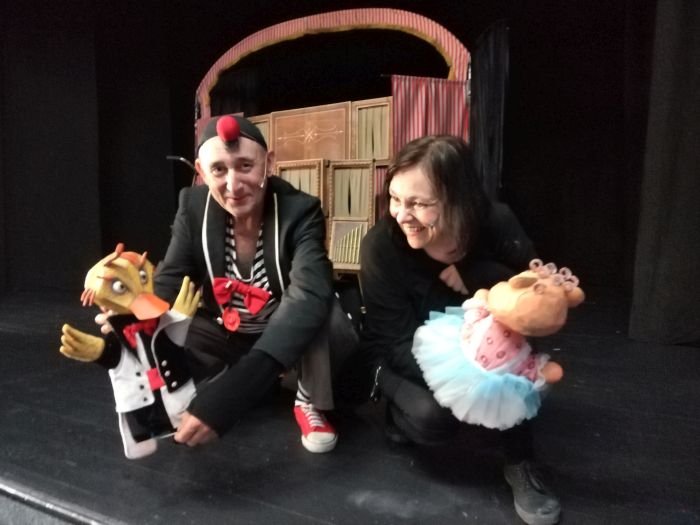


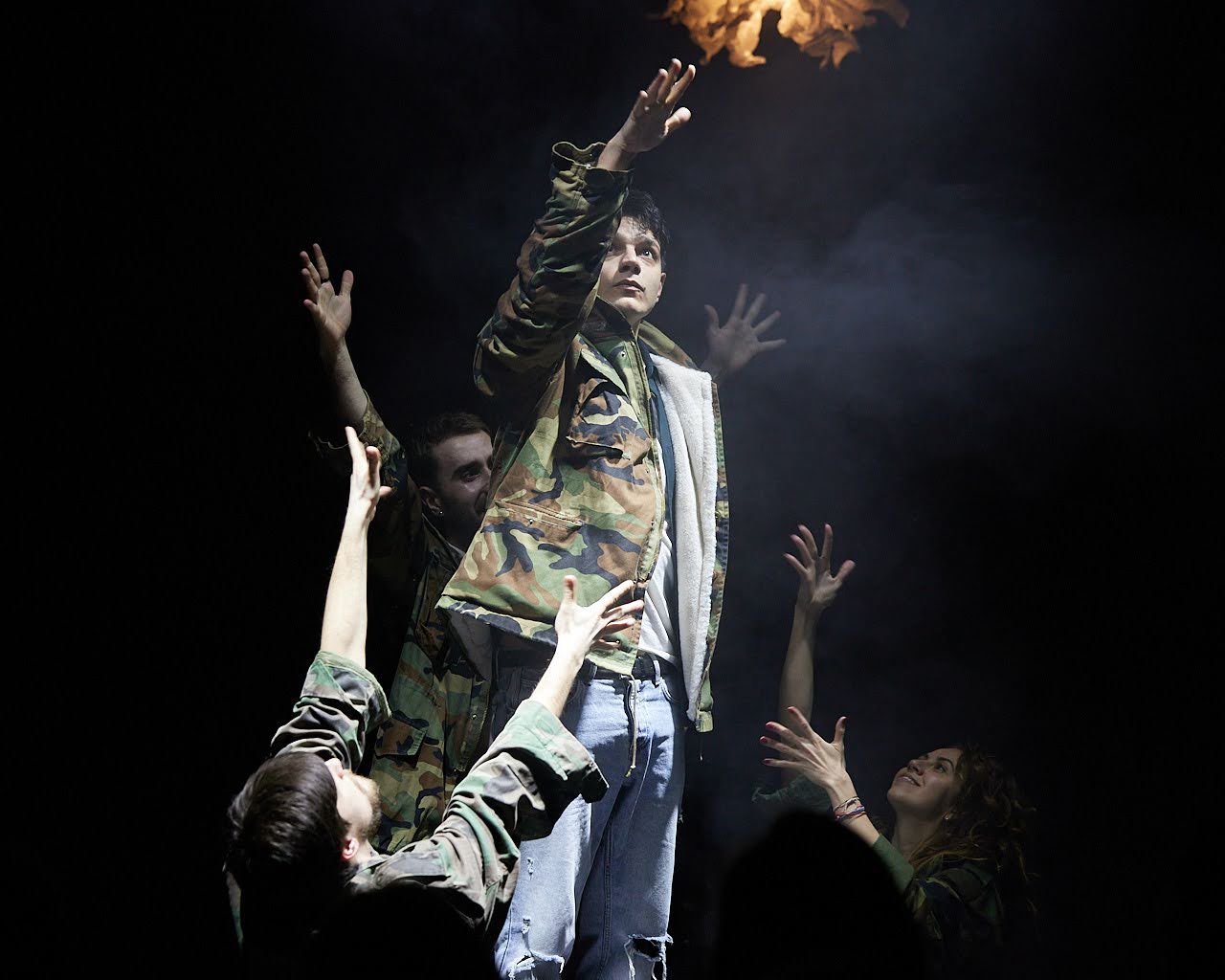 Since I always write through a personal lens, I wonder to what extent the generation gap between me and the characters is an obstacle in recognizing their problems, and how much of it is due to the author's team trying too hard with this: we all had and still have various fears, but at least we try to find a cause for them; whereas, it seems to me that in this play, only the surface has been "scratched" without really investigating what it is all truly about?! What makes this play interesting (and very good) are the actors: especially Vedran Dakić, whose acting energy is a real locomotive. In his acting, everything is dosed and in its place: movement, grimace, sarcastic comment. Despite the role of a "background player" (compared to the energetic Ana in Sara Moser's interpretation), Matko Trnačić coped exceptionally well in the duality of Jan: he would be happy to express himself, but he would not want to insult ayone. The characters of Mila (Tustanovski) and Neno (Radoš) are on that line, but in a smaller contrast, so they all together form a well-balanced cast.
Since I always write through a personal lens, I wonder to what extent the generation gap between me and the characters is an obstacle in recognizing their problems, and how much of it is due to the author's team trying too hard with this: we all had and still have various fears, but at least we try to find a cause for them; whereas, it seems to me that in this play, only the surface has been "scratched" without really investigating what it is all truly about?! What makes this play interesting (and very good) are the actors: especially Vedran Dakić, whose acting energy is a real locomotive. In his acting, everything is dosed and in its place: movement, grimace, sarcastic comment. Despite the role of a "background player" (compared to the energetic Ana in Sara Moser's interpretation), Matko Trnačić coped exceptionally well in the duality of Jan: he would be happy to express himself, but he would not want to insult ayone. The characters of Mila (Tustanovski) and Neno (Radoš) are on that line, but in a smaller contrast, so they all together form a well-balanced cast.